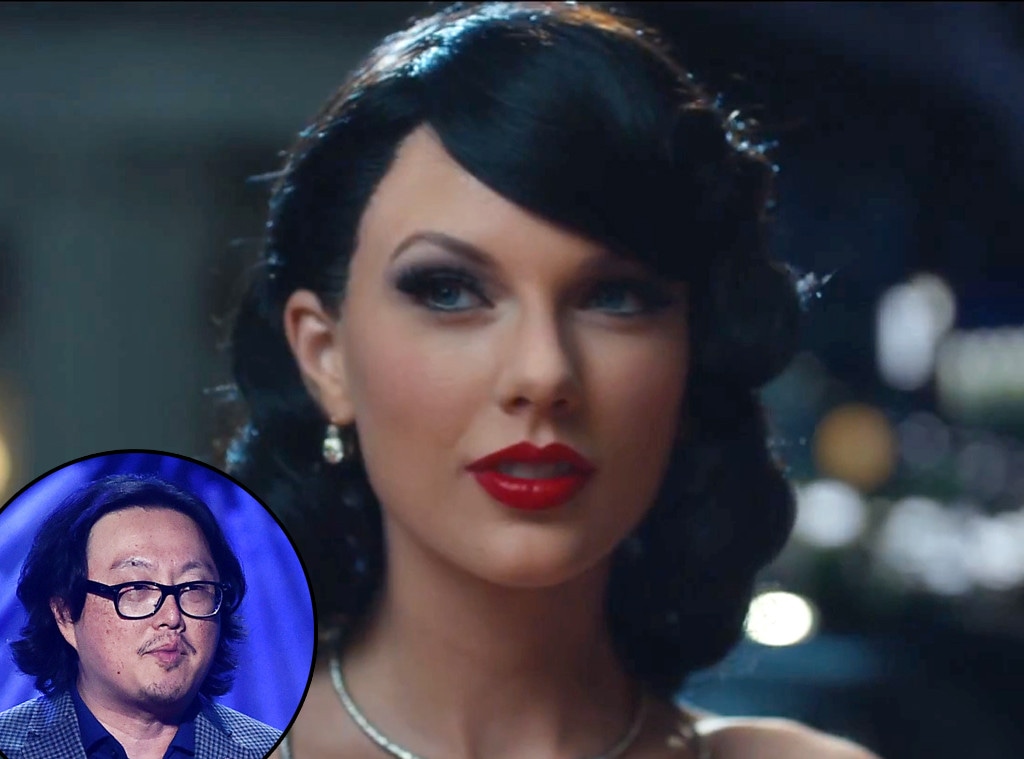 Getty Images
Getty ImagesHaters gonna hate...
Joseph Kahn, the director of Taylor Swift's "Wildest Dreams" music video, is defending the clip amid claims that the video glamorizes African colonialism.
The 25-year-old pop star, whose video has been viewed nearly 16 million times on Vevo since its release Sunday, has come under fire as many outlets have pointed out that the clip mainly features wild animals and white actors.
"Taylor Swift is dressed as a colonial-era woman on African soil. With just a few exceptions, the cast in the video—the actors playing her boyfriend and a movie director and his staff—all appear to be white," an NPR article titled "Taylor Swift Is Dreaming Of a Very White Africa" reads. "We are shocked to think that in 2015, Taylor Swift, her record label and her video production group would think it was OK to film a video that presents a glamorous version of the white colonial fantasy of Africa."
In response to the criticism, Kahn has issued a lengthy statement in defense of the video, noting that it was edited by an African-American man and produced by an African-American woman.
"'Wildest Dreams' is a song about a relationship that was doomed, and the music video concept was that they were having a love affair on location away from their normal lives," Kahn said in a statement. "This is not a video about colonialism but a love story on the set of a period film crew in Africa, 1950."
"Wildest Dreams," which was shot in Africa and features Swift alongside hunky actor Scott Eastwood, is meant to evoke old Hollywood glamour and a Notebook-esque love story.
"There are black Africans in the video in a number of shots, but I rarely cut to crew faces outside of the director as the vast majority of screentime is Taylor and Scott," Kahn continued. "The video is based on classic Hollywood romances like Elizabeth Taylor and Richard Burton, as well as classic movies like The African Queen, Out of Africa and The English Patient, to name a few.
"The reality is not only were there people of color in the video, but the key creatives who worked on this video are people of color. I am Asian American, the producer Jil Hardin is an African American woman, and the editor Chancler Haynes is an African American man," he said. "We cast and edited this video. We collectively decided it would have been historically inaccurate to load the crew with more black actors as the video would have been accused of rewriting history. This video is set in the past by a crew set in the present and we are all proud of our work."
He adds that the video has "no political agenda" and argues that it has been "singled out."
"There have been many music videos depicting Africa. These videos have traditionally not been lessons in African history," he said before concluding, "Let's not forget, Taylor has chosen to donate all of her proceeds from this video to the African Parks Foundation to preserve the endangered animals of the continent and support the economies of local African people."
While Swift has yet to comment on her director's remarks, Kahn furthered his point on Twitter.
I absolutely love that Taylor donated all her video proceeds to African parks Foundation. She's lost a lot of money doing that. Good soul.
? Joseph Kahn (@JosephKahn) September 1, 2015Fyi I say we shot it in "Africa" because I shot it on more than one country. Botswanna and South Africa.
? Joseph Kahn (@JosephKahn) September 1, 2015I work with the most famous people in the world...and I would never want to be famous. People take shots at you 24/7. It's nuts.
? Joseph Kahn (@JosephKahn) September 2, 2015People have culture war fatigue. Everyone is angry at everything all the time. We're just one long Delete It Fat.
? Joseph Kahn (@JosephKahn) September 2, 2015Likewise, the video's editor Chancler Haynes replied to one fan who asked if he was upset about the lack of African-American actors.
@BenDadfleck No, people are being stupid. We made a story about love. Not everything is about race homie.
? Chancler Haynes (@ChanclerVHaynes) September 1, 2015